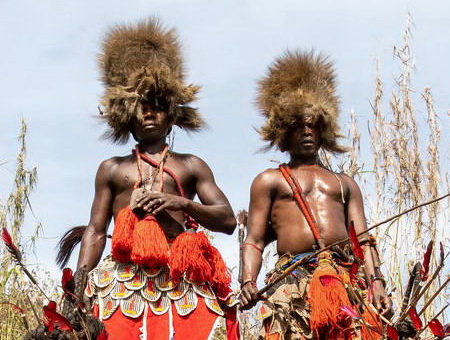Eggon Expressions: A Tapestry of Inspiration Woven in Words:
By: Peter Ritdung Wakkias
Nestled in the heart of North Central Nigeria, specifically in Nassarawa and Plateau states, the Eggon people stand as a testament to the rich cultural tapestry that weaves through the West African Savannah.
With a population exceeding 200,000, the Eggon people are a diverse yet culturally homogenous group, preserving their unique identity despite the winds of change that have swept through the region.
ALSO READ: Ebiekpemre Unveiled: The Irresistible Charm of Butter Beans in Eggon Traditional Marriages
Roots in Independence: A Decentralized Society
The history of the Eggon people unfolds as a tale of decentralization and independence. Throughout their pre-colonial existence, they maintained a deeply rooted and self-sufficient society, comprised of various clans, tribes, and houses.
Unlike larger societies, the Eggon people did not adopt a generic name but identified themselves through three major clans: Anzo, Eholo, and Anro. This division reflected the intricacies of their social structure, contributing to the unique mosaic of their culture.
Cultural Melting Pot: Language and Religion
At the core of Eggon identity is the Eggon Language, a native tongue that has withstood the test of time. Even in the face of regional influences, the Eggon people proudly speak their language, intertwining it with the Hausa language, a regional staple in Northern/North Central Nigeria. English, a colonial legacy, also finds its place among the linguistic repertoire of the Eggon people, a testament to their adaptability and resilience.
Religiously, the Eggon people embrace a tapestry of beliefs, including Christianity, Islam, and Traditional African religions. This diverse religious landscape mirrors the tolerant and inclusive nature of the Eggon society, where different faiths coexist harmoniously.
Geographical Identity: Madan Dutse and Beyond
While the Eggon people are sometimes referred to as Madan Dutse by the Hausa, it is crucial not to confuse them with the Mada people of central Nigeria.
Although the names may sound similar, the Eggon people share linguistic, cultural, and moral similarities with the Mada and Rindre of Akwanga Local Government Area.
The name “Eggon” itself carries historical weight, originating from the hill where the majority of them once lived before migrating to the lower plains.
The word encapsulates a profound meaning, loosely translated as “a good sense of hearing or perception ability.” This not only reflects their connection to the land but also highlights their acute awareness of the world around them.
Preserving Heritage: Challenges and Triumphs
In the face of modernization and globalization, the Eggon people continue to navigate the delicate balance between preserving their heritage and embracing the opportunities of the contemporary world.
The Eggon Language, a linguistic treasure trove, remains a symbol of their resilience against the currents of change.
As the Eggon people march forward into the 21st century, they carry with them a rich history, a diverse linguistic heritage, and a cultural mosaic that serves as a source of inspiration for generations to come.
“Eggon Expressions: A Tapestry of Inspiration Woven in Words” is not just a title but a reflection of the vibrant and enduring spirit that defines the Eggon people.
